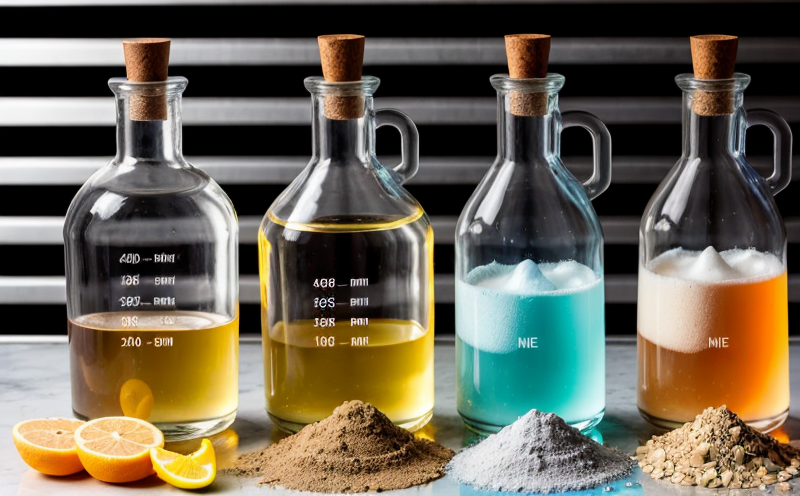ASTM E2395 Electrolyte Analysis of Lithium Batteries under Extreme Conditions
The ASTM E2395 test method is a critical tool for the quality assurance and reliability assessment of lithium batteries. This procedure evaluates the electrolyte performance in extreme conditions, providing insights into potential vulnerabilities that could compromise battery integrity.
Lithium batteries are widely used across various sectors due to their high energy density and long operational life. However, they are susceptible to degradation under certain environmental or operational stresses such as temperature extremes, pressure changes, and mechanical abuse. ASTM E2395 allows engineers and quality assurance teams to identify these risks early in the development process.
The test involves subjecting lithium batteries to a series of controlled stress conditions that replicate real-world usage scenarios. This includes high-temperature storage tests at 85°C, low-temperature cycling from -40°C to +65°C, and pressure cycles up to 3 bar. The electrolyte is then analyzed for its stability, reactivity, and overall compatibility with the battery's internal components.
The significance of ASTM E2395 lies in its ability to predict how a lithium battery will perform under adverse conditions. This helps manufacturers optimize their designs to enhance safety, reliability, and performance across various applications. By identifying issues early, companies can mitigate risks associated with product failures or recalls, thus protecting brand reputation and customer trust.
During the testing process, samples are taken from the battery before and after exposure to extreme conditions. These samples undergo a comprehensive analysis that includes measuring the pH level, viscosity, and specific gravity of the electrolyte. Additionally, spectroscopic techniques may be employed to assess changes in chemical composition or impurities introduced during stress.
The results of ASTM E2395 are essential for regulatory compliance and product safety certifications. Regulatory bodies such as the International Electrotechnical Commission (IEC) and Underwriters Laboratories (UL) often require this test when evaluating new battery technologies. The findings also play a crucial role in R&D activities, guiding improvements to electrolyte formulations and battery designs.
For quality managers and compliance officers, ASTM E2395 ensures that products meet stringent industry standards and customer expectations. By adhering to these tests, companies can demonstrate their commitment to producing reliable and safe lithium batteries. For R&D engineers, this test provides valuable data for refining electrolyte formulations and optimizing battery performance under challenging conditions.
| Applied Standards | Description |
|---|---|
| ASTM E2395 | Standard Test Method for Electrolyte Analysis of Lithium Batteries under Extreme Conditions. |
| IEC 62133 | Performance, safety and marking requirements for rechargeable portable power supplies. |
Applied Standards
The ASTM E2395 standard is part of a broader framework that ensures the safety and reliability of lithium batteries. It aligns with other international standards such as IEC 62133, which specifies performance, safety, and marking requirements for rechargeable portable power supplies.
| Applied Standards | Description |
|---|---|
| ASTM E2395 | Standard Test Method for Electrolyte Analysis of Lithium Batteries under Extreme Conditions. |
| IEC 62133 | Performance, safety and marking requirements for rechargeable portable power supplies. |
Why Choose This Test
- Predicts potential issues in lithium battery electrolytes under extreme conditions.
- Ensures compliance with international safety and performance standards.
- Provides critical data for R&D activities to optimize electrolyte formulations and improve battery performance.
- Enhances product reliability, thereby reducing the risk of failures and recalls.
- Demonstrates a commitment to producing safe and reliable lithium batteries that meet customer expectations.
International Acceptance and Recognition
The ASTM E2395 test method is widely recognized in the global battery industry. It has been adopted by numerous manufacturers, regulators, and standards bodies as a best practice for evaluating lithium battery electrolytes under extreme conditions.
Regulatory compliance with this standard ensures that products meet rigorous safety requirements set forth by organizations like IEC and UL. This recognition enhances market acceptance and trust among consumers and industry stakeholders.





